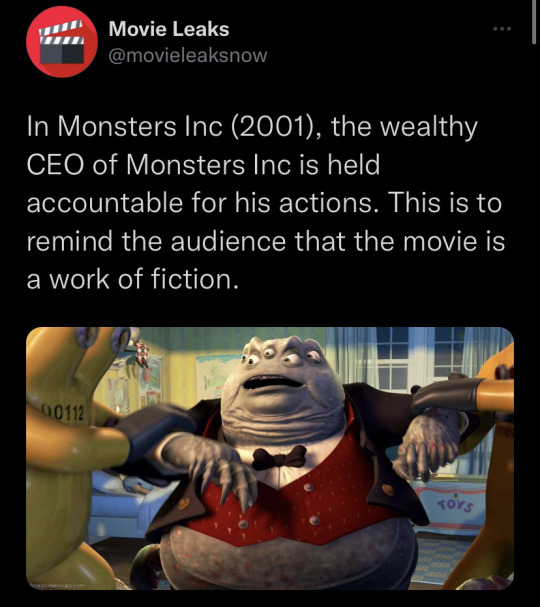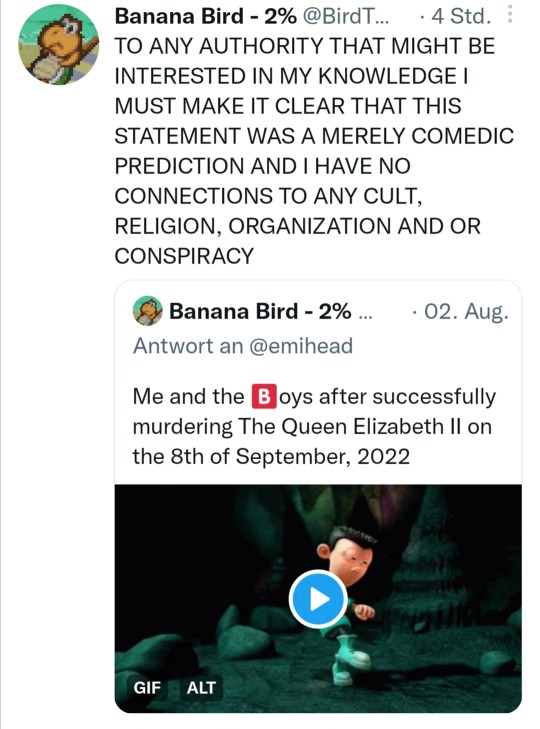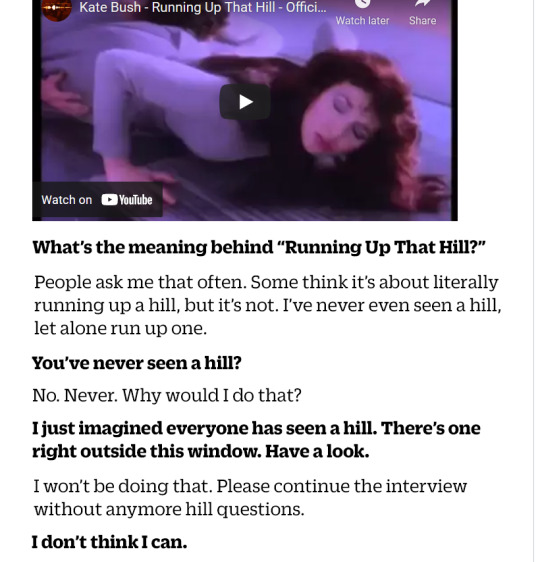Text

imagine thinking this is a flex i would kill myself if this was my life
129K notes
·
View notes
Text
Severance By Ling Ma
Cissy, Ivy, Lilly, Max, and Lindsay
Article Breakdown
Priscilla Wald’s piece “Imagined Immunities'' outlines the term ‘outbreak’ by its effect, imagined or otherwise, on the globalized world. Wald not only politicizes the term but connects its legal intrusion to the collective consciousness of people shaped by popular cultural influences like books and movies. The fear of a disease disrupting the lives of innocent people, turning ‘regular’ individuals into victims is explored in great detail Ma in Severance. Shen fever, having the ability to wipe out all semblance of function and normalcy in a city like New York, is what gave it its weight of importance and its air of danger, but the same could not be said when it victimized Fuzhou. The spreading of something from a foreign nation, whether it be ideals, politics, people, and now disease propagates the seclusion of western nations and fortifies a lack of empathy for victims. Wald describes the “third-worldification”(45) of epidemics as producing harmful narratives about less affluent countries as inciting racist world-views about globalization. Unlike political and national identities, epidemics are not restricted by nationality.
Anachall Sarafs article connects the fear of orientalism and immigration with the overall problems created by capitalism. There are many noted fears of Yellow Peril as Westerners attempt to adjust to waves of immigrants. Part of the fear is the unity of the Other that it’s not singular instances, but rather a wave or a mob, which threatens many people's perceived ways of life. Aanchal writes of the acts of the American Government in which they fear Asian immigrants, therefore disallowing entry to their country, although Shen Fever not being spread through human contact. This implements the ideology of the capital radicalization towards Asian people. She also includes the idea of Romantic anti-capitalism and how both poor and wealthy Asian Americans contribute to this economic takeover while including the works of Day in which Day writes that romantic anti-capitalism and capitalism unify in which white settlers are allowed to take credit for the large-scale labor processes that therefore discredit Indigenous and Asian American people. Otherwise put as “romanticizing”.
Reading Guide
What we know about disease is how small it can make a person feel; the collective scramble to establish what is real and important in our routines and what exactly we are willing to give up to survive. Ling Ma’s Severance depicts a post-apocalyptic world ravaged by the deadly Shen Fever, where all semblance of function and normalcy have been devastated. Unlike the violent monsters depicted by most zombie apocalypse stories, Ma dares to remove the sensationalism which often allows protagonists to mass murder the infected. Instead, these “monsters” are more akin to the lethargic office-workers of corporate America of whom Candace can more closely relate. Shen fever is so destructive because of the specific cords of fear it strikes within western society disinclined to accept disorder and the “third-worldification”(Wald, Imagined Immunities) of cities like New York. Our critical analysis looks at these themes of total takeover and repetition through the lens of immigration in the articles Imagined Immunities by Priscilla Wald and Global Racial Capitalism and the Asian American Zombie in Ling Ma's Severance by Aanchal Saraf.
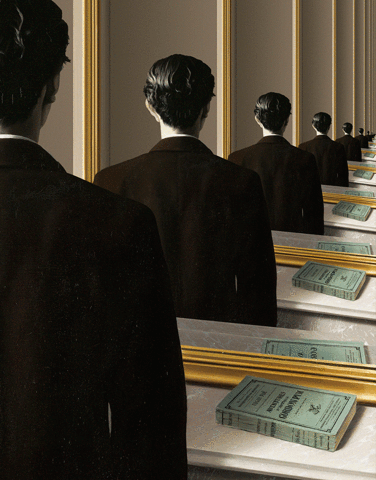
Candace’s Mother and the American Dream
Candace’s perception of routine is greatly influenced by her mother’s expectations towards living up to the “American Dream”. Although Candace finds comfort in routine, her mother reassures her that “What you do everyday matters'' (Ma 63). This alludes to Candace's struggles with breaking out of her routine due to the inability of realizing her severance from her past. She is fed this idea of the “American Dream” and how being successful requires good work ethic. This contributes to Candace’s efforts in trying to stay employed throughout the novel and her sense of belonging when finding reassurance in routine. Furthermore, we can attribute her repetitive notions as a means to satisfy the standards of consistency in good work behaviour. Meaning as a society, it is believed that an individual can become successful if they stay consistent with their efforts.
Repetition plays a major role in embracing the narrative of “the workday” throughout the novel. The common workday is described as people spending most hours of their day providing to companies that benefit themselves in exchange for money. This therefore gives for stability and survival. If one were to refuse the idea of “the workday”, the ability for survival would be harder to maintain. For that reason, the aim for the “American Dream” is greater for individuals who want to escape that infinite cycle of labor. However, how can one ultimately achieve that without falling short to this phenomenon in this day and age?
When Candace’s mother reiterates the importance of “doing her skincare regime everyday” (Ma 63), this once again alludes to Candace’s understanding of routine. Candace explains how she would watch her mother go through her daily skincare routine and how she would call Candace to emphasize the importance of maintaining a proper facial regime. Her recollection of this memory is a representation of her mother’s influence on routine and how Candace perceives it. When her mother explains how the aging process will be worse if she doesn’t follow this skincare regime every day, it is a nod to work life and how following a good work ethic will provide for a better outcome.

Religion as Assimilation
Throughout the novel, the recurrence of religion is heavily exemplified as a motif for the manufacturing of goods. As a Bible publisher, Candace is accustomed to monotony and routine, finding comfort in the structure work provides. Severance utilizes the bible for many allegorical connections throughout the novel, like in the passage “We work on the weekdays, rest on the weekends.” Referencing the biblical work week calls into focus Candace’s need to assimilate. The world of manufacturing under the guidance of capitalism has made an industry out of people’s faith by creating a commodity out of the bible. Working under capitalism as a way to assimilate, Candace is comforted not with the words of the bible, but of knowing the amount of effort and detail each bible requires. On her trip to the Gowers, Candace laments about her experience with the bible, selecting it above all else to admire in their library.
Despite her comfort in the manufacturing process, Candace understands the futility of their constant recreation. Throughout the book, the harsh realities of capitalism weigh heavily on Candace’s mind, as she grapples with her connection to the countries being exploited for the material goods and her current home in the packing centre of the world, New York. She has heard the real world detriments of the manufacturing process, knowing that “workers are dying”(24) in service for this pointless replication.
Unlike others, Candace’s ability to see past the facade of capitalism is heavily connected to her upbringing, in which religion and materialism were greatly intertwined. Candace’s mother used religion as she did capitalism to help integrate herself into American society, a fallacy Candace never bought into after seeing the futility of her mother’s attempts. Instead, Candace adopted her father’s practice of working to establish oneself in the society. Candace is able to become one in Bob’s group because her “past and present” memories become indistinguishable and her lack of a strong sense of belonging allows her to adopt her mother’s reverence for religion as a facade. At the tail end of the novel, Candace’s dream sequence illuminates her understanding of this when she says “they know and I know they are all selling the same thing, year after year, in different translations and in different packaging”(139), in regards to various unknown bible salesmen soliciting her.

A Cycle of Abuse
Repetition in the book is a theme not just limited to capitalism and consumption, but is also noted in the relationships the characters have to one another. Candace is characterized by her high capability to observe and assess. Her survival instincts include getting to know the people in the group as they navigate New York on their way to the safe house, constantly on her toes and looking for signs that would mean her chance to escape or fight. Being that Bob’s reactions to the apocalypse are in almost direct opposition to hers, he lacks empathy for the infected and sees the event as an act of God, putting himself in control, she spends much time psychoanalyzing him while they slowly open up to each other. Candace repeats herself over and over again when she scans his face and watches his every move to make sure that she is not in danger, and she loses control and descends into mental panic when she repeats the action in the mall when trying to read his expression and sees that he has succumbed to the Shen fever. In the passage itself, the sentences are short and each mimics the last, it's a very nervous thought process, the way she repeats herself in what she has seen in Bob. The passage begins with her recounting what she has seen when she has analyzed him before, “I have seen his face in its many variations”, “I have spent a lot of time trying to read”, “I have seen when he’s angry”, and slowly descends and finishes with Candace realizing how in control of the situation she thought she was by watching his every move. Candace found comfort in being able to understand Bob, to recognize his every emotion and to know that if she repeats the same analytical steps, she can be safe and secure when around him. It's when that pattern of reputation fails, and she can’t see what he’s thinking, and as much as she tries to remember what worked and act on what she’s always done that she finally lets her own emotions show. Candace empathizes with the fevered because she is a person who needs repetition to feel safe, she has an abusive relationship with her own actions and executes them in a pattern because it is all she has ever known.

Work as a Form of Identity
Near the end of Severance, we witness our protagonist Candace’s borderline bizarre reaction to a global pandemic by continuing her office contract despite her co-worker’s absences. We can trace her motivation back to the words from her mother that seemingly continue to resonate, “No matter what, we just want you to be of use.” This is at the core of what drives Candace in the beginning days of the Shen Fever outbreak. We watch as everyone questions her continued routine, completing work that’s already been done and doing a job that is completely necessary to provide fulfillment. As the few remaining pack their things, Candace seems to need this habitual routine; she needs something to keep herself occupied. After completing menial tasks, we see that she’s faced with an actual issue: a broken elevator.
After getting trapped and escaping, Candace is given the opportunity to complete a task. She occupies her time contacting those she deems fit to complete the job. After unsuccessful attempts at getting use out of the city workers, she exclaims, “the city should do its job.” For her, everyone has their job that must be done, for a job is what defines a person in her mind; work is an identity. If she must work to make her place in her new home, so should everyone else. Once she finishes emailing her bosses about the situation, she explains that “it was satisfying to finally execute a task, but the satisfaction was fleeting. I needed more to do”. For the first time in a while, Candace is of use. She notes this usefulness by explaining her steps to the solution, further validating her efforts and usefulness.
Candace’s desire to perform habitual tasks can be seen as reflective of the experience of immigrants who lack a new identity and fill that space with work. They must earn their spot in America and provide value through work, bonding their work ethic with their identity. For Candace, all she has is her work. She had abandoned relationships and hobbies like the NY Ghost, so what she has left is what she provides to the company. In immigrating and leaving, or severing, their old life behind, the Chen family forged their new one under the principle of work.
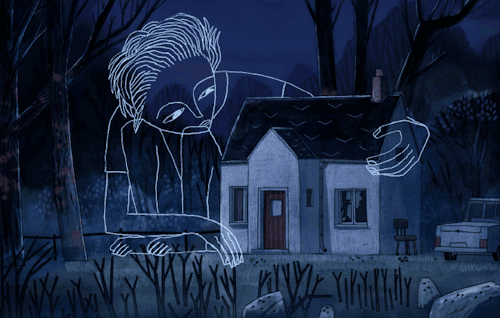
Large Scale Regression and Repetition
When first at the facility, Candace begins to truly wonder the intricacies of Bob, who he was before the fever and why he chooses to lead a group to this ‘graceland.’ The call back to Bob’s life before the downfall, in which he “part owned this place”, is a part of the theme of repetition and nostalgia. At the facility, the group finds joy in the simplest activity of playing with candies and toys. Re-experiencing joy as a manifestation of every member's inner child harkens back to Ma’s repeated use of nostalgia in capitalism and the melding of reality with the past.
Bob took the group all the way to that specific mall in Chicago because he was a part owner of it, and he grew up going to this mall. Just as the group is able to familiarize themselves in a new setting by using the iconography from their childhood, Bob has a direct remembering of his time growing up in the exact mall. This reminiscence of teenage life seems like many of the characters revert to how they may have acted as teenagers. For example, the group of Janelle, Ashley, and Evan are often “sneaking out” to get weed and other recreational drugs from their stalks. In times of stress, we tend to revert to what is known. The theme of nostalgia and repetition are very closely connected in this novel. Even the suspicion of becoming fevered and nostalgia indicates that nostalgia may play a part in the process of becoming fevered.
The world of Severance is one no character was truly prepared for, and thus serves new challenges. They are all trying to figure out how to function in this new environment with new rules of survival and can’t ask people for help. They must forge their own paths and in a sense, “fly blind”. This experience is reminiscent of what many immigrants have shared about the refugee experience. The experience can be an intimidating one, and often regression toward repetition can provide comfort in battling the unknown. Overall the regression in the characters is a factor in the cyclical nature of the book.

The role of memory and repetition trap the characters in their cycles of abuse and trauma, which Ma uses to characterize “the fevered”. Candace’s relationship with her mother is a repetition of the same story of familial disconnect which has been played out for generations, and the American dream only furthers the succession. Starting from this point, Candace’s relationship to others in her romantic, and work life is delineated by a need to categorize people into personality types she has already come across and assumed to understand, specifically with her boss Bob, who holds the most physical power in the situation. The role of religion is also a structural mold which Candace finds comfort in as the moral rights and wrongs are clearly organized for her others to either accept or reject in a tidy manner. Her work becomes her identity, and as an immigrant in a city where she is expected to set roots, it allows her to feel in control. She has mastered the work role and feels she knows her place in the production of bibles, and remains with her boss when the apocalypse comes. These elements connect and relate to the motif of repetition as the cyclical nature of the immigrant experience, and ultimately Candace and Bobs, as well as the worlds, descend into nostalgia and the comfortable surrender to our need for order even if the order is madness.
1 note
·
View note
Text
Reblog and put in the tags how often you “clean” your tumblr account, deleting old posts.
162K notes
·
View notes
Text
81K notes
·
View notes
Text

All of those would be cheaper than imprisoning people, so if you’re against it, it can’t be because of money.
73K notes
·
View notes
Text
Unfortunately you are going in the narrative we all had a talk and decided you're going to be a vehicle for themes and motifs
43K notes
·
View notes








